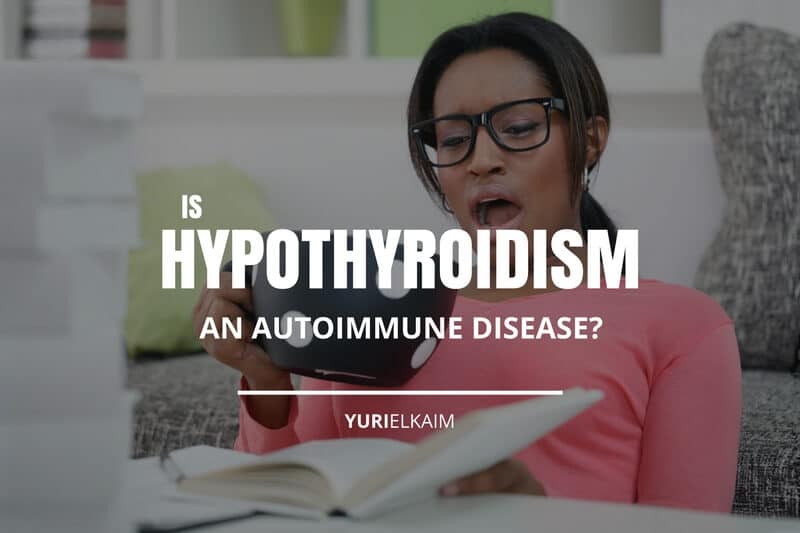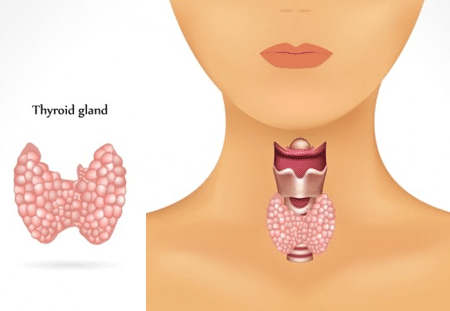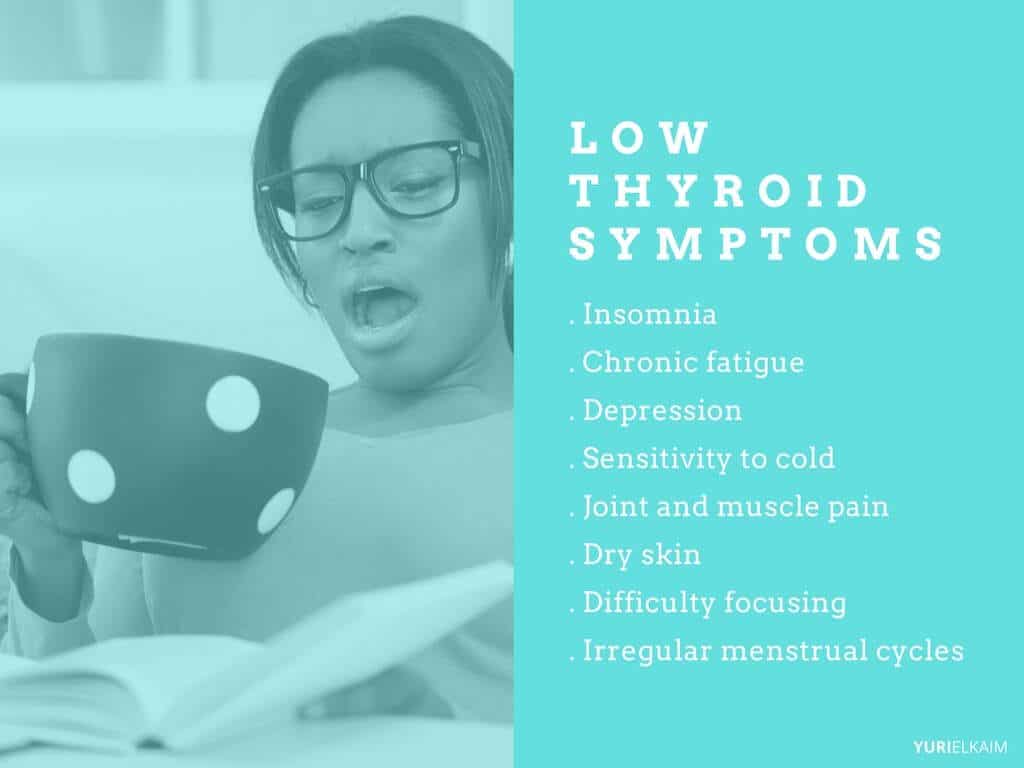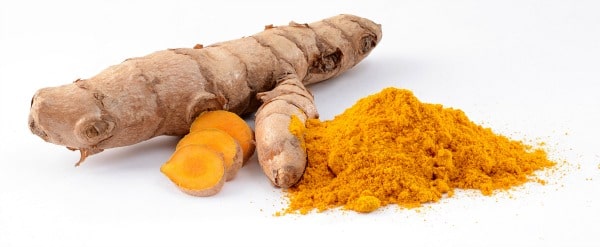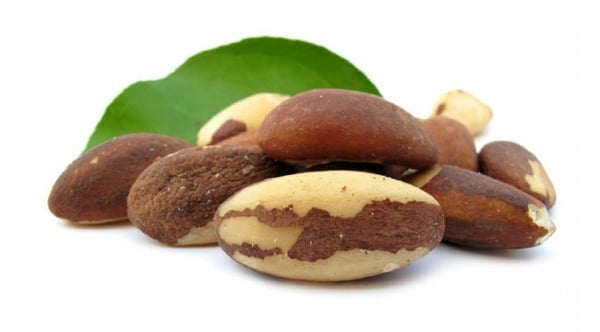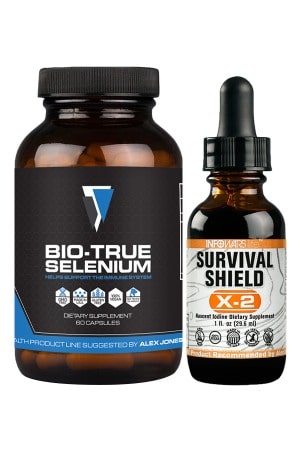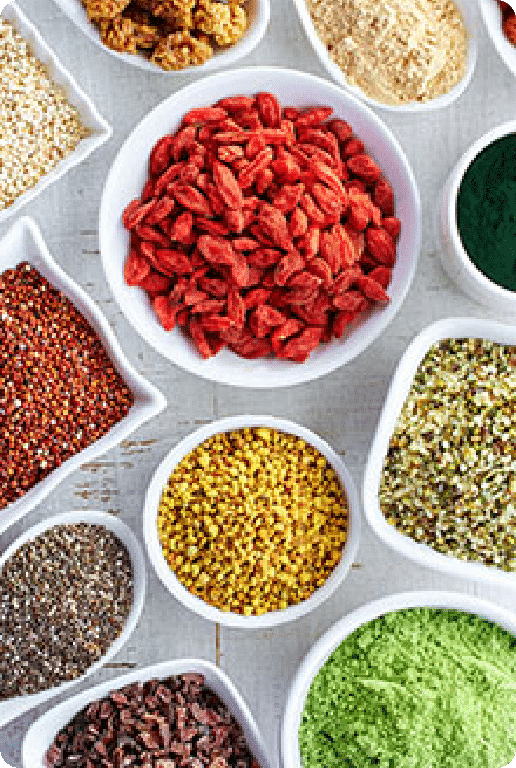Do you constantly feel sluggish, drained, or worn down?
Or maybe you’ve tried intense diet and workout plans to lose weight, but the scale won’t move.
Is a hidden autoimmune issue to blame?
Hypothyroidism affects nearly 20 million Americans, causing weight gain, irritability, and chronic lethargy – and as many as 60 percent of people who have it don’t even know it (1).
There’s a lot of confusion surrounding hypothyroidism and many people don’t understand what it means.
What is hypothyroidism? Is hypothyroidism an autoimmune disease? And how can it be treated?
Let’s dig in.
Is Hypothyroidism an Autoimmune Disease?
The thyroid, a butterfly-shaped gland situated at the base of the neck, is responsible for producing thyroid hormones that keep our body running smoothly.
Thyroid hormone is responsible for increasing cellular activity throughout our entire body. It also regulates critical bodily functions, including our heart rate, breathing, menstrual cycles, body temperature, weight, and metabolism (2).
It does all of this by using the iodine in the foods we eat to produce two key hormones: triiodothyronine (T3) and thyroxine (T4).
Hypothyroidism is the term used to describe a thyroid gland that is underactive and unable to produce enough thyroid hormone to meet the body’s needs.
An inadequate supply of thyroid hormones can produce many undesirable symptoms, including:
- Insomnia
- Chronic fatigue
- Depression
- Sensitivity to cold
- Joint and muscle pain
- Dry skin
- Difficulty focusing
- Irregular menstrual cycles
The Causes of Hypothyroidism
There are many causes of hypothyroidism, and it can be present from birth or appear spontaneously later on in life.
Having part of your thyroid gland removed surgically or destroyed due to radiation treatment can spur the development of hypothyroidism.
Thyroiditis, inflammation of the thyroid gland, can also affect thyroid activity, as can damage to the pituitary gland or an inadequate dietary intake of iodine.
Also, some individuals are born with only a partial thyroid gland or without any thyroid gland at all. This is more common than you would think, affecting up to 1 in 3,000 to 4,000 births worldwide (3).
But one of the most common types of hypothyroidism is autoimmune hypothyroidism, also known as Hashimoto’s disease.
What is an Autoimmune Disease?
Autoimmune diseases occur when the body’s immune system misinterprets your own healthy cells as foreign cells and attacks them.
Rheumatoid arthritis, celiac disease, multiple sclerosis, and lupus are all common types of autoimmune disease.
When it comes to autoimmune thyroid disorder, the body perceives the thyroid gland and its hormones as invaders, prompting the immune system to create antibodies that target, attack, and deteriorate thyroid function.
This causes a decline in thyroid function – or hypothyroidism – along with all the accompanying symptoms.
Anyone can become hypothyroid, but most at risk are women over the age of 60, people with a family history of autoimmune hypothyroidism, and those already affected by another autoimmune disease.
Left untreated, autoimmune hypothyroidism can lead to many complications (4). A few of the most common complications include:
- Goiter, or enlargement of the thyroid gland, can develop due to overstimulation of the thyroid gland
- Mental health issues, such as depression or decreased libido, are also commonly associated with autoimmune hypothyroidism
- Heart conditions are more likely to be present, due to the fact that an increase in LDL cholesterol is commonly experienced in those with hypothyroidism
- Birth defects may occur in babies born to women with untreated hypothyroidism
- Myxedema, a rare but life-threatening condition, can occur as a result of long-term untreated hypothyroidism
Autoimmune Hypothyroidism Treatment Options
Autoimmune hypothyroidism is a serious condition, but it is possible to treat and alleviate the side effects that accompany it.
First, you should always consult with your doctor, especially if you’ve been recently diagnosed with autoimmune hypothyroidism. They will often prescribe medications that can help treat hypothyroidism.
One of the most common prescribed treatments for hypothyroidism is thyroid hormone replacement, which works by bringing your hormone levels to a normal level.
The biggest downfall using thyroid hormone replacement is that it requires close monitoring of thyroid levels and symptoms can persist – or even get worse – if you take too much or too little.
There are also natural remedies that help you maintain optimal thyroid function and keep symptoms under control.
Here are six easy ways to help you get started on the track to a healthy thyroid:
1. Go Gluten-Free
Gluten has been closely linked to thyroid function because it has a similar protein structure to thyroid tissue. As a result, frequent consumption of gluten can cause your immune system to start attacking your thyroid.
This is why I advocate a gluten-free diet, especially if you have autoimmune thyroid disease.
Ditch the bread, pasta, and cereal and opt for gluten-free substitutes instead. There are plenty of gluten-free grains that you can incorporate in your diet to help you make the switch.
All the recipes I post on the blog are gluten-free, so check them out if you need some inspiration.
2. Minimize Processed Foods
A good diet is key to good health, regardless of whether or not you have autoimmune hypothyroidism. With autoimmune disease, however, diet becomes especially important in healing a leaky gut and promoting proper digestion.
Our digestive system is full of tiny pores that allow nutrients to travel into our body.
But when we load up on gut-irritating processed and junk food, the pores get wider and actually let food particles pass into the bloodstream. That causes our immune system to kick into action, sending out antibodies to fight off the foreign substances.
Over time and with repeated exposure, the immune system becomes overactive, setting the stage for the development of allergies and autoimmune disease.
A whole-foods-based diet rich in fruits and vegetables – with minimal amounts of processed foods and refined sugars – is crucial to stopping this cycle and allowing your gut to heal.
3. Cut Out Dairy
Much like gluten, dairy can irritate to the digestive system and can also be hard to digest. That’s why consuming too much dairy can cause inflammation and trigger an immune response, taking things from bad to worse for those if you have an autoimmune disease.
Making the switch to dairy-free is pretty easy. Almond milk, hemp milk, and coconut milk are just a few healthy milk alternatives that can help ease your transition into eliminating dairy from your diet.
4. Add Anti-Inflammatory Foods to your Diet
In addition to following a plant-based, whole foods diet, your diet should also include anti-inflammatory ingredients.
- Make sure your diet is full of healthy omega-3 fatty acids, found in fatty fish, flaxseed, chia seeds, and fish oil.
- Anti-inflammatory spices, like turmeric, are also an excellent dietary addition.
- Ginger is another powerful inflammatory-fighting agent that can help support a healthy immune system. Add some to your tea or grate it over a hot bowl of soup for a beneficial boost.
These foods all have inflammation-busting properties that will keep your immune system in tip-top shape, allowing your thyroid to perform at its best.
5. Increase Iodine and Selenium Intake
Iodine and selenium are two of the most important minerals to maintaining good thyroid function. Without enough of either, the thyroid is unable to produce enough of the hormones that our body needs.
Iodine can be found in seaweed – such as kelp – and also eggs. Cranberries, navy beans, and potatoes are all other great ways to incorporate more iodine into the diet.
Selenium-rich foods include fish (like tuna, shrimp, and sardines) and meat, including turkey, chicken, and beef. Brazil nuts also are an excellent source of selenium and only a small amount is required to meet your daily needs.
Most adults need 150 mcg of iodine and 55 mcg of selenium per day, which is definitely doable with just a few servings of iodine- and selenium-rich foods per day. Meeting your daily requirement is key to boosting thyroid function.
6. Consider Supplementation
If you have dietary restrictions, it can be challenging to get enough iodine and selenium in the diet. Supplementing with these minerals might be a good idea if that’s the case for you.
Many supplements specifically targeted for thyroid function only include either selenium or iodine, but rarely both. Unfortunately, this doesn’t help with fixing the problem. That’s why I recommend supplementing with both iodine and selenium for maximum effectiveness.
Healthy Lifestyle to Boost Thyroid Function
Hypothyroidism can be a challenging disease to treat and anyone who has suffered from the condition can attest to the many trials and tribulations that it presents.
No need to fear, though. A healthy lifestyle complemented by a few natural thyroid-enhancing remedies can make it easier than ever to help promote hormone production and alleviate the symptoms that are accompanied by an underactive thyroid gland.
Tired All The Time?
Get my proven 3-step formula to go from exhausted to energized in less than a week – as experienced by more than 26,237 tired men and women.
My Double Your Energy report will ramp up your energy, naturally and safely!
Click the banner to get FREE access to it right now!

